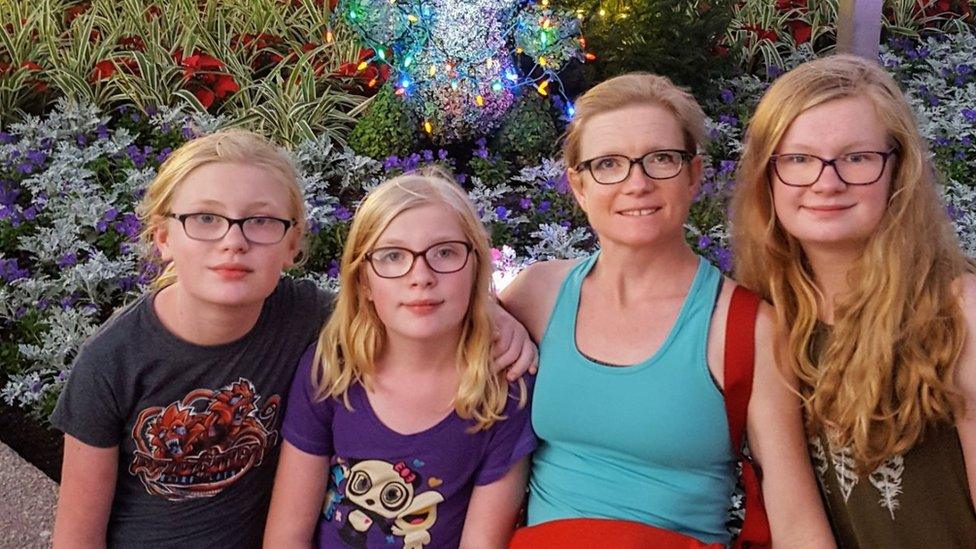Dementia whiteboard 'touches hearts' around the world
- Published
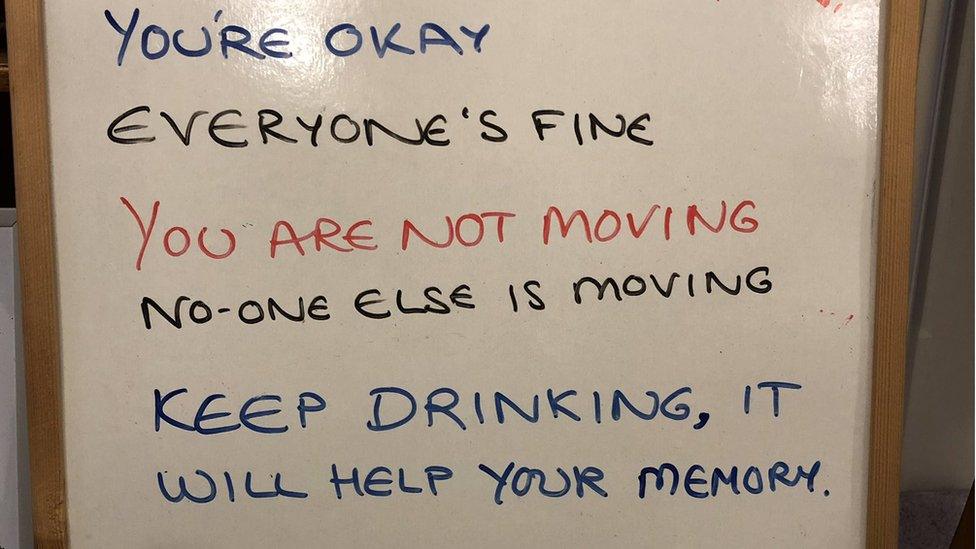
Dr Philip Grimmer says he was "struck" by the whiteboard and had not seen anything like it before
Words of reassurance written on a whiteboard by a daughter to her mother have led to a global conversation about dementia.
Dr Philip Grimmer, a GP in Wiltshire, UK, was visiting a patient when he saw what was on the whiteboard and thought, "I've got to share this".
Dr Grimmer says the daughter explained that the board aims to reduce "anxious phone calls" made by her mother to relatives, and has been placed in her eye-line at her home in Chippenham.
Dr Grimmer told the BBC: "I'd not seen anything like it before in thousands of house visits. It's caring, reassuring and sensible - it's just such a simple idea."
What was intended as a tweet for a "few interested colleagues" has been liked more than 40,000 times, external.
The original image of the whiteboard which was posted on Twitter also listed: "You don't owe anyone any money" and "You haven't upset anyone."

Dr Philip Grimmer says he had not seen anything like the whiteboard in "thousands of house visits"
It wasn't long before people were sharing whiteboards and ideas of their own.
One person tweeted, external that his father-in-law used "electrical tape on the floor to mark the path from his mother's room to the bathroom to aid with night-time wandering".
Allow X content?
This article contains content provided by X. We ask for your permission before anything is loaded, as they may be using cookies and other technologies. You may want to read X’s cookie policy, external and privacy policy, external before accepting. To view this content choose ‘accept and continue’.
Another says she's worked in the NHS for 28 years, and gets help from friends and family to create "memory boards" so staff and patients can talk to each other more easily.
"People see dementia, external and forget about the person inside," she said. "There's a Pandora's box of fascinating stories just longing to be set free.
"We do that with the memory boards and you can see the sparkle come back into their eyes."
Allow X content?
This article contains content provided by X. We ask for your permission before anything is loaded, as they may be using cookies and other technologies. You may want to read X’s cookie policy, external and privacy policy, external before accepting. To view this content choose ‘accept and continue’.

You may also be interested in:

The whiteboard soon attracted global attention.
Aman Bhatia from the Indian city of Shimla, saw Philip's tweet and posted the image on Reddit, external where it has gained more than 112,000 upvotes.
Reddit user Kryptosis suggested, external the words "you can use the bathroom whenever you like" be added as a former partner's grandmother who had dementia thought she wasn't allowed to go to the bathroom.

Aman Bhatia from Shimla, India, said he is "baffled" by the huge response to the image of the whiteboard he reposted on Reddit
Many of the stories shared by families and medical professionals alike touched on the anxiety which dementia can cause.
Hailley, a nurse from Canada, commented on Reddit, external: "I had one resident where I worked who would be in tears because he was worried about his children and having to pay for his meals.
"It was sometimes tough to reassure him. We had to call his children to talk to him a few times. It was hard to see him so upset."
She told the BBC: "I have seen people talk down to those with dementia, which is just not right. They are still adults who know when they are being treated differently.
"People just do not know how to interact with them. It takes patience and you may not be able to have a conversation with them in the same way you would with someone without dementia.
"The whiteboard addresses what gets asked the most [by those] in long-term care."
What is dementia?
Dementia is a syndrome, external - a group of related symptoms - associated with an ongoing decline of brain function. It can affect memory, thinking skills and other mental abilities.
According to the Alzheimer's Society, external there are around 850,000 people in the UK with dementia.
Tim Beanland, a spokesperson for the Alzheimer's Society says: "Anxiety is really common amongst people with dementia and they can need a lot of support, but help is out there.
"Whiteboards are useful for providing a structure for the day or explaining that someone has left the house and will return at a particular time.
"As long as what is written on the board does not offer false reassurances, then techniques like this are a good thing."
The Alzheimer's Society also advises that someone with dementia, external who is experiencing anxiety may benefit from company and the opportunity to talk about their feelings.
And because those living with dementia can also worry about losing things, external, Mr Beanland recommends decluttering and adding labels on drawers and glass-fronted cupboards so people know what's inside.
Jared Goodwin who lives in Australia and cares for people with dementia at a hospital in Victoria, posted online a list of his own tips for supporting people, external with dementia, including playing them music and giving them the opportunity to draw.
He told the BBC: "Redirection activities tend to be most effective. Patients often find enjoyment in doing simple things when dementia gets more advanced - tasks that come from muscle memory rather than requiring complex thinking, like folding some washing."
Dr Grimmer is now looking forward to sharing the responses he has received from his tweet to his patient's daughter.
He said: "Dementia is such a heartbreaking subject for so many people and this simple solution to support often elderly relatives has resonated with so many people around the world.
"The idea has touched people's hearts."

If you or someone you know has been affected by this issues in this story, the organisations listed here may be able to help.
If you are in the UK and need support regarding dementia, external there are a variety of options on the NHS website.
For information on Alzheimer's disease and related dementias care, research, and support in the US visit the Alzheimers portal, external.
- Published31 January 2019
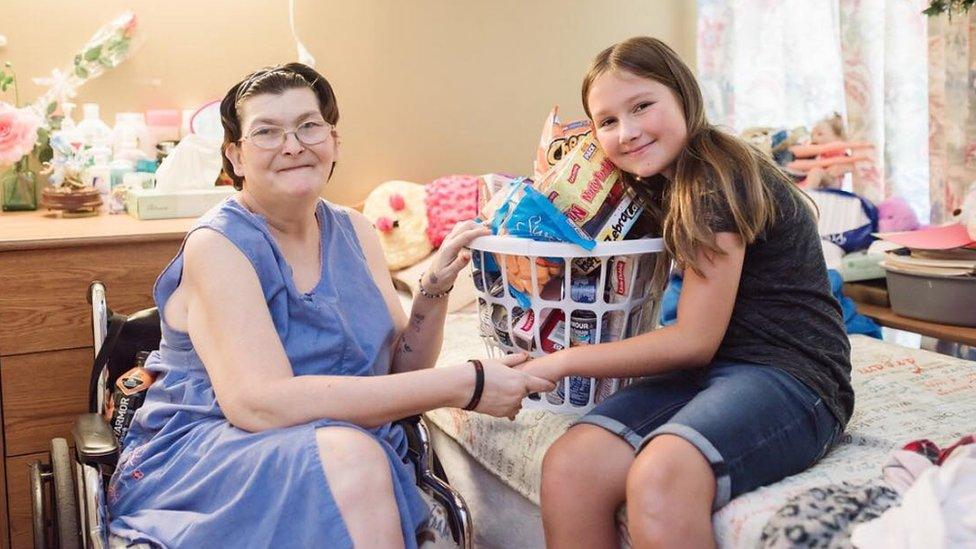
- Published29 January 2019
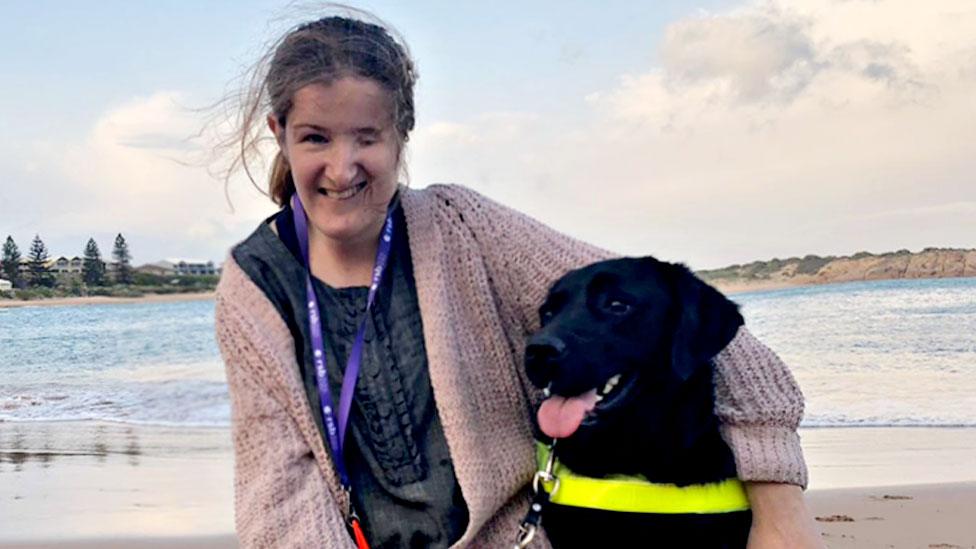
- Published27 January 2019
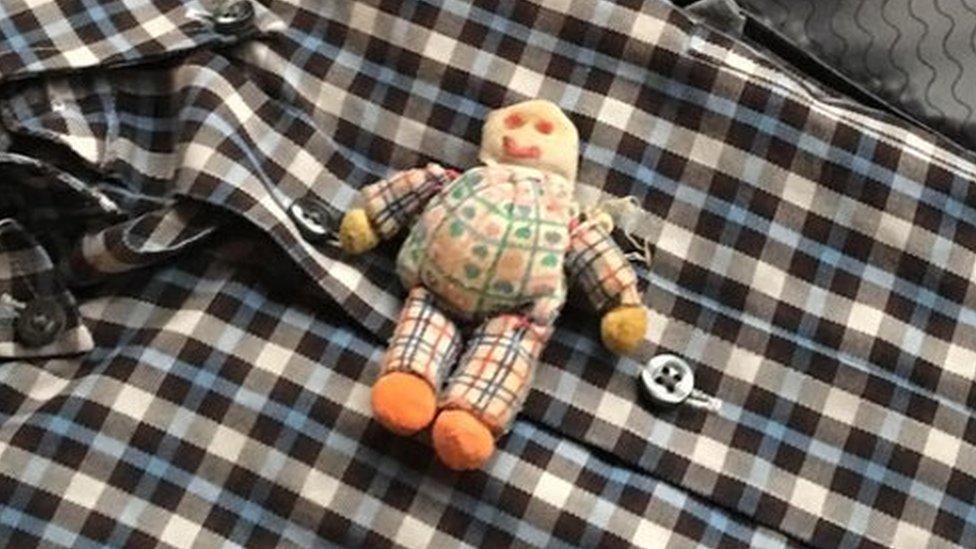
- Published25 January 2019
